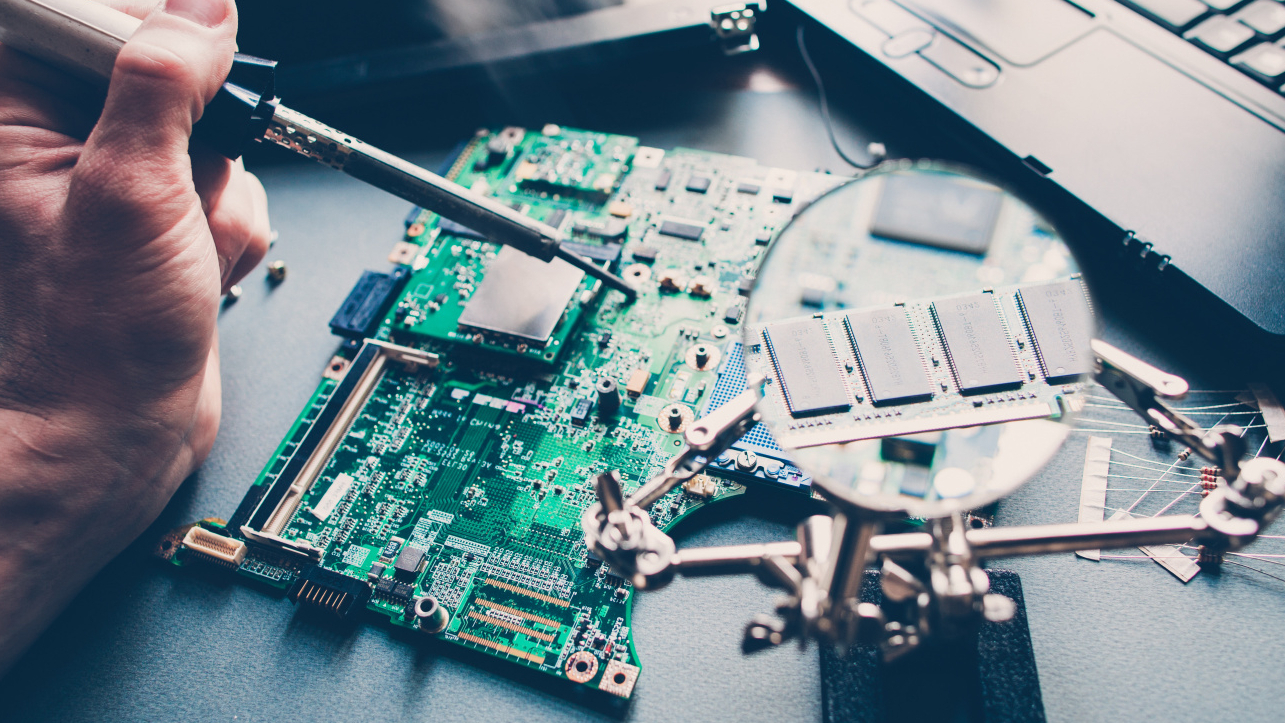There are many arguments in favor of restoring non-compliant or defective products to their target condition by reworking or repairing them instead of scrapping them. Many things are already being practiced, but there are still a number of areas where a rethink is needed.
During production, storage, transportation and integration into systems, it can happen that products are not handled as intended, so that they no longer conform in all characteristics. And during inspections during production, it is sometimes discovered that a characteristic has a value that is outside the specified tolerance. In these cases, if it can be clarified what the cause is and the non-conformity can be eliminated by rework or repair without compromising reliability, this should be considered. It then depends on the value of the product and the rework or repair costs as to whether this also makes economic sense. So far, little thought has been given to whether this makes ecological sense.
For high-quality products - even the most sophisticated ones such as those used in aerospace technology - reworking and repair are generally common practice, but not yet for 'cheap' mass-produced products. The same applies to maintenance, as this does not exist for 'cheap' mass products.
How rework and repair of electronic assemblies are carried out professionally is set out in standards such as DIN EN 61192-5 'Requirements for the quality of workmanship of soldered assemblies - Part 5: Rework, modification and repair of soldered electronic assemblies', in the ZVEI guideline 'Rework of electronic assemblies' and in the IPC guidelines IPC-7711 'Rework of Electronic Assemblies' and IPC-7721 'Repair and Modification of Printed Boards and Electronic Assemblies'.
Sustainability for mass products too
So far so good. But we now live in a world characterized by a shortage of energy and resources and threatened by climate change. Sustainability is therefore the order of the day in general and especially for mass-produced products. After all, it has been a legal requirement in some cases for years.
In Germany, for example, the Circular Economy Act has been in place for many years. This requires the following order of priority with regard to waste:
- avoidance
- Preparation for reuse
- recycling
- other recovery, in particular energy recovery and backfilling
- disposal.
Waste must therefore be avoided as far as possible and otherwise prepared for reuse. This also applies to electronic products and electronic waste, as these do not fall under any of the exemptions in the scope of application. With regard to sustainability, further regulatory requirements are currently being worked on at European level. These include a modification of the Eco-Design Directive, which aims to make products (easier) to repair. Among other things, this should also make it possible to replace batteries in cell phones.
No rework in automotive technology
But things are still not happening everywhere. In the field of automotive technology, OEMs in particular are still demanding that any non-compliant products detected on the production line be automatically ejected and immediately destroyed. And this even though the products could be reworked or repaired without compromising their reliability. Only legal experts can decide whether and how this is compatible with the Closed Substance Cycle Waste Management Act.
What is certain is that a rethink is required here and that reworking and repairs must generally be used in other areas in order to conserve resources.


